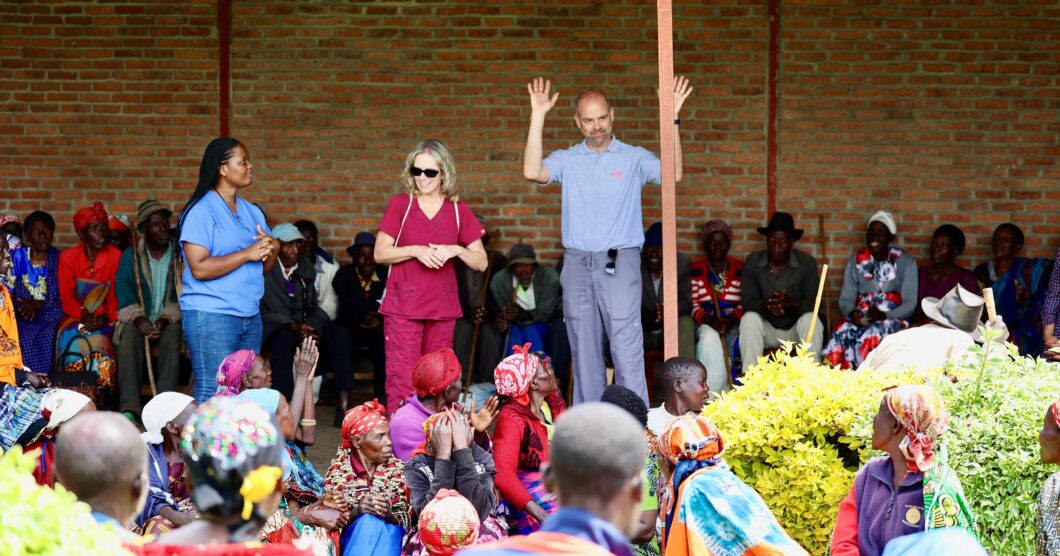
Exploring the East African country of Rwanda with our new partner organisation Heart and Sole Africa (HASA)
The medi for help team embarked on an exploratory trip to Rwanda in early November 2022 together with our partner organisation Heart and Sole Africa (HASA) to help people with podoconiosis. The chronic tropical disease is considered a non-contagious type of elephantiasis and is also known as non-filarial lymphoedema. Symptoms include extreme fatigue, bilateral swelling of the legs with asymmetric expression, discolouration of the skin and nodular growth on the toes and feet.
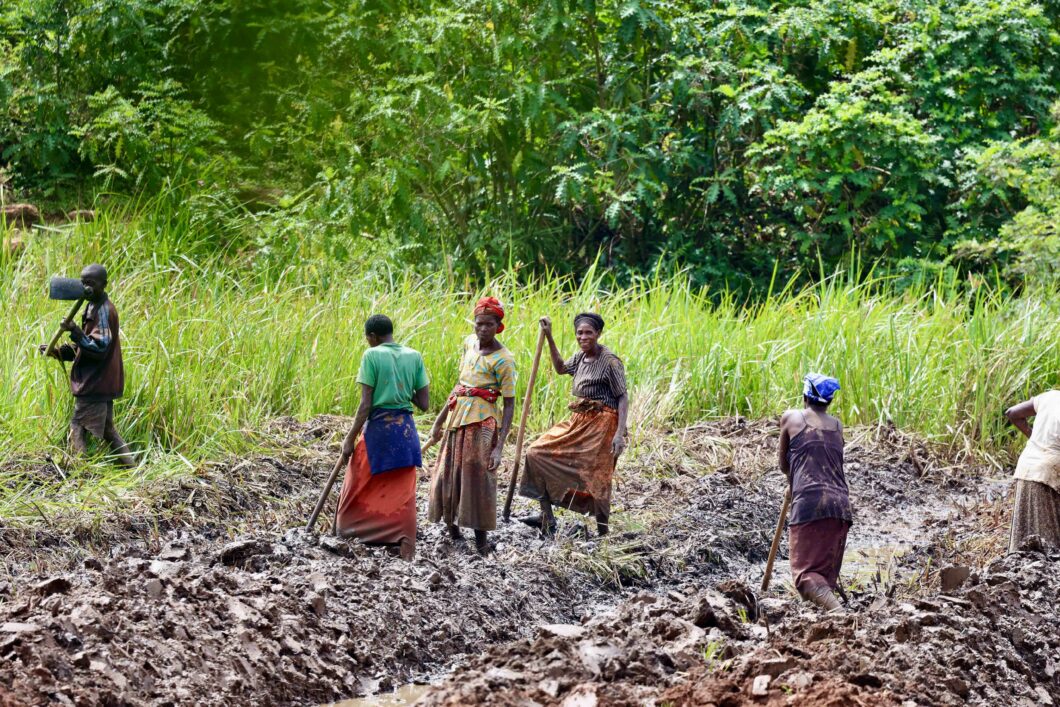
In the northern province of Rwanda, podoconiosis (podo) is mainly caused by high concentrations of silicic acid in the soil. People who walk barefoot on the volcanic clay soil are particularly affected. A large number of those affected are therefore small farmers who work in the fields without shoes and are thus chronically exposed to the silicates.
As the majority of the work here is done by women, many girls and mothers are also affected. About 6,500 people are affected by podo in Rwanda, and health care providers for these particular patients are scarce or non-existent.
A 2020 survey by the Center for one Health at the University of Global Health Equity in Kigali attempted to assess the knowledge, attitudes and practices of health care providers from all districts in Rwanda. As many as 44 percent of respondents correctly identified soil as the only direct cause of illness. 76 percent expressed negative attitudes towards podoconiosis sufferers, seeing them as a threat to the health of themselves and their families. This showed clear gaps in knowledge and treatment of the disease.
Source:
Ursin Bayisenge University of Global Health Equity. Published online at:
https://journals.plos.org/plosntds/article?id=10.1371/journal.pntd.0008740 (Last accessed 03/02/2023).
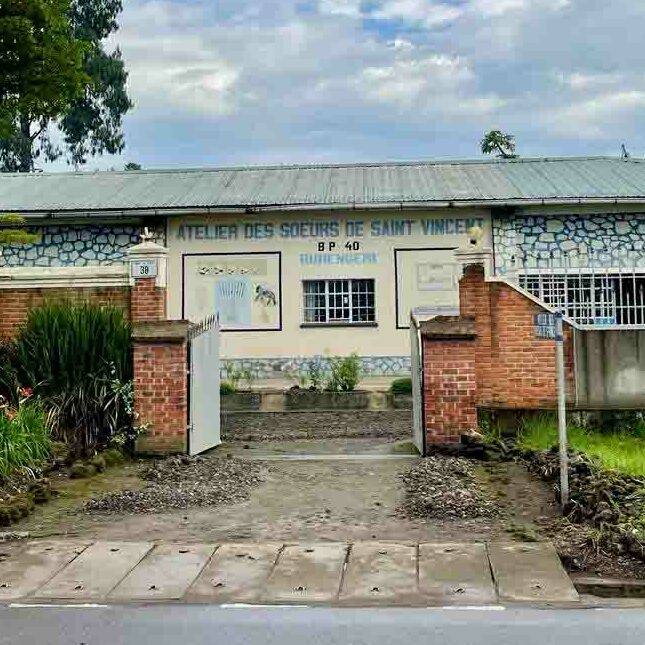
HASA has been working in the field since 2009 and supports those affected at more than eleven locations across the country. Cooperation with partner clinics, such as the St. Vincent Children and Family Centre in Musanze, has led to the development of a successful prevention and treatment programme for podoconiosis patients. Symptoms of the chronic disease can be combated with education and hygienic tools.
On our trip, we also found that young people with the disease and mothers with children were being abandoned by their families and sometimes living on the streets. There is a misconception that the disease is contagious. It is therefore extremely important to educate people about the development of podo and the correct way to deal with the disease in order to prevent the social isolation of those affected.
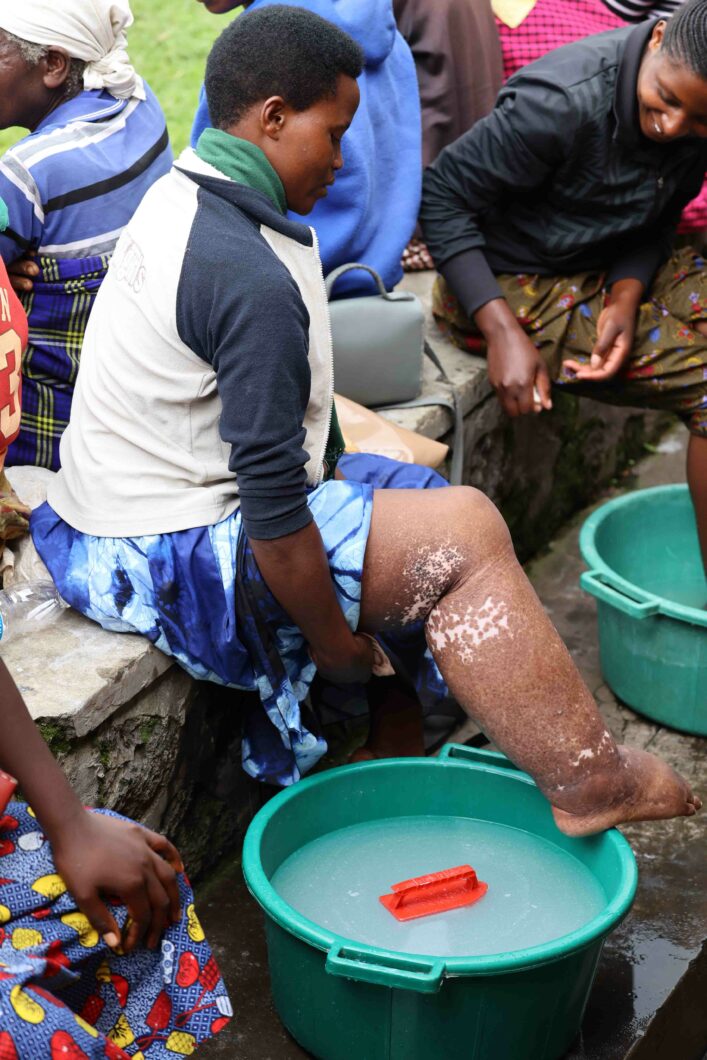
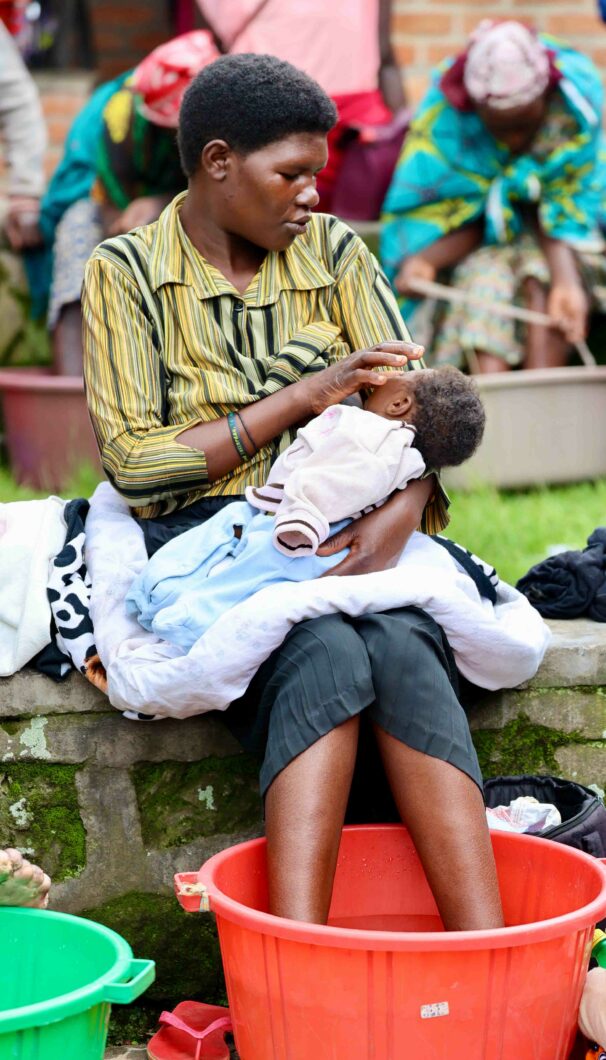
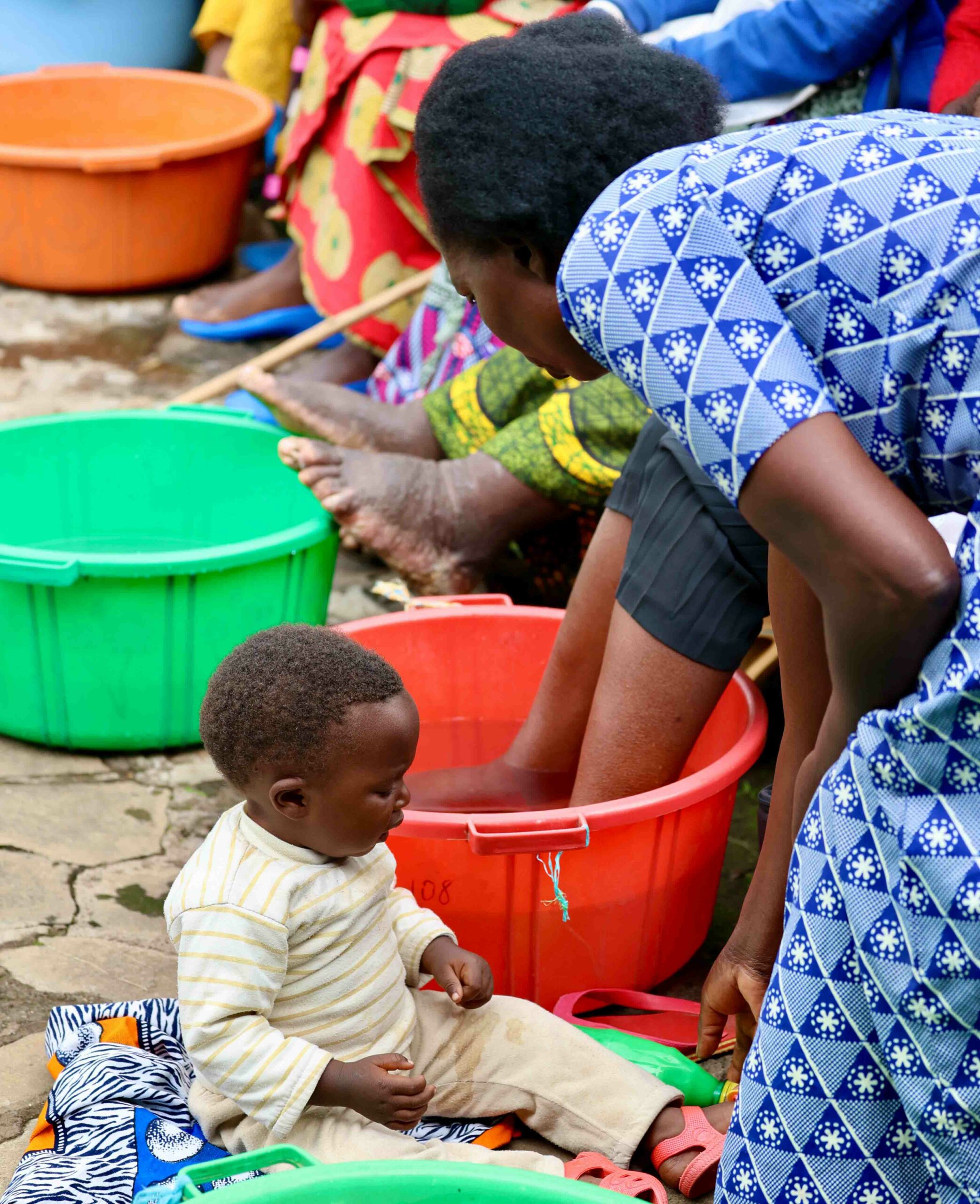
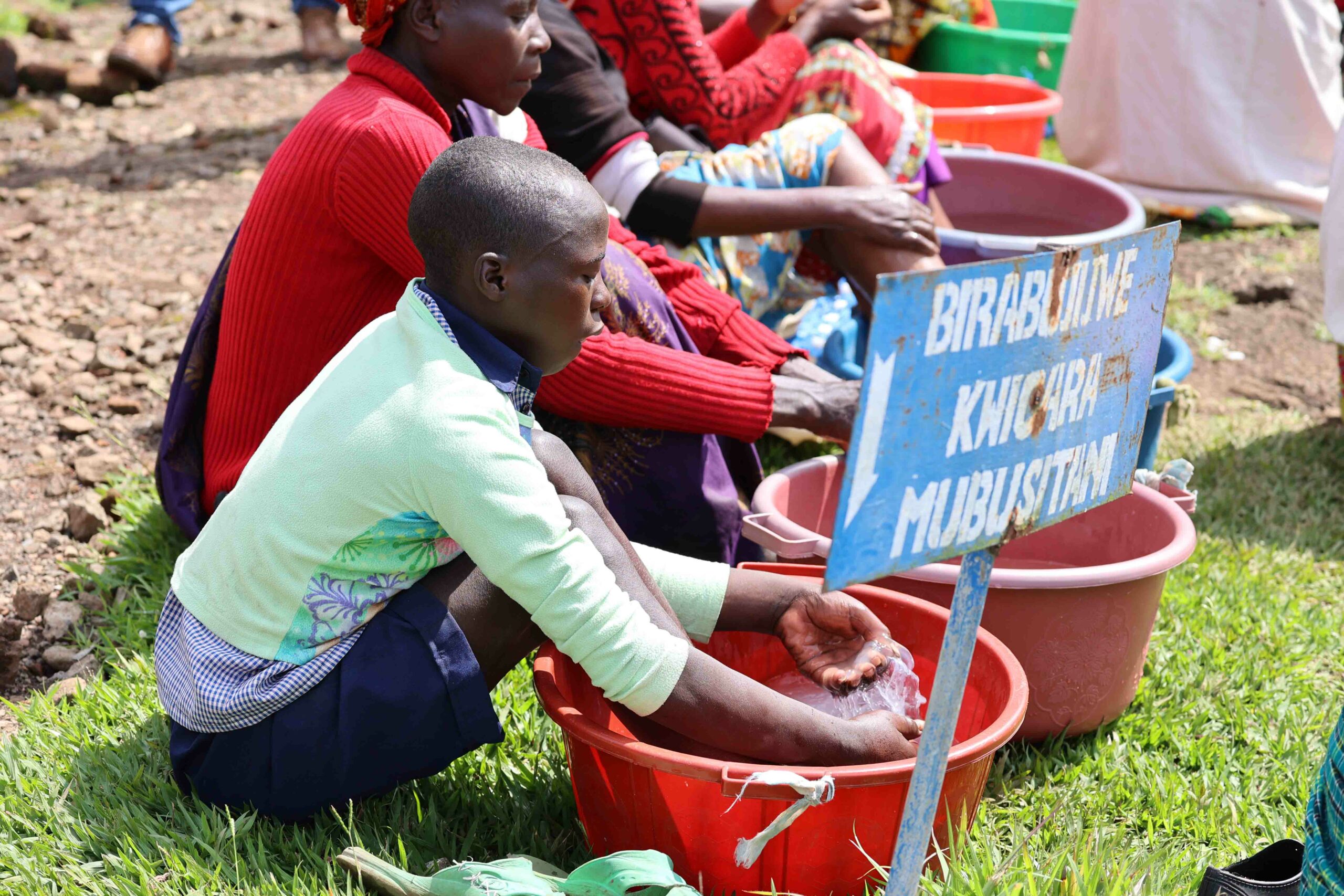
Important goals: education and integration into a social environment
The shared goal of HASA and medi for help is to gain trust locally and to provide appropriate education about podo to patients and their relatives. In addition to hygiene treatment and wound care, treatment of podoconiosis patients requires multi-stage, permanent compression of the lower extremities with a view to promoting lymphatic flow and controlling swelling.
This is where medi for help comes in: during our trip, we supported Heart and Sole Africa by providing the required compression products from medi and providing further training for the local nursing staff.
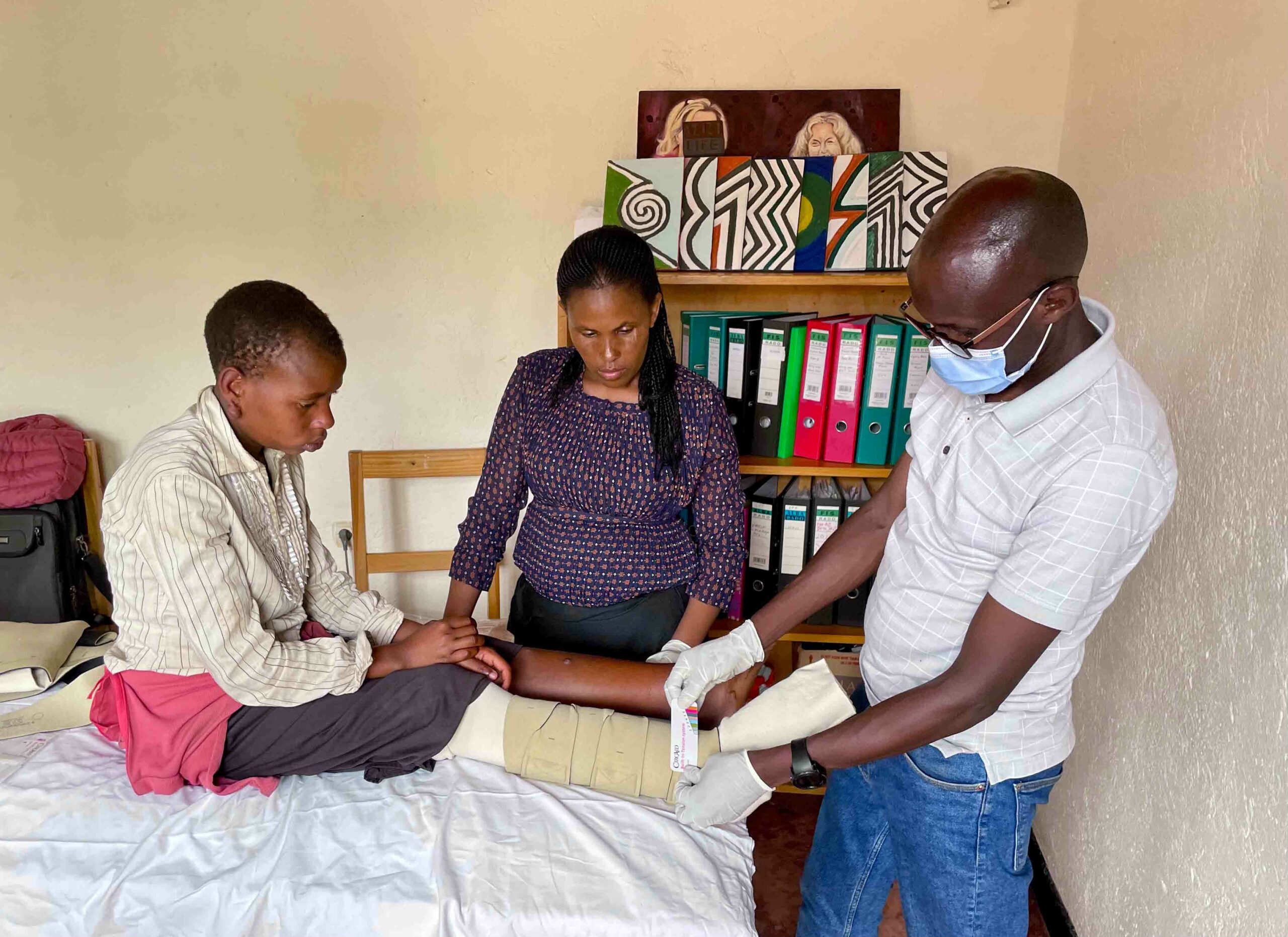
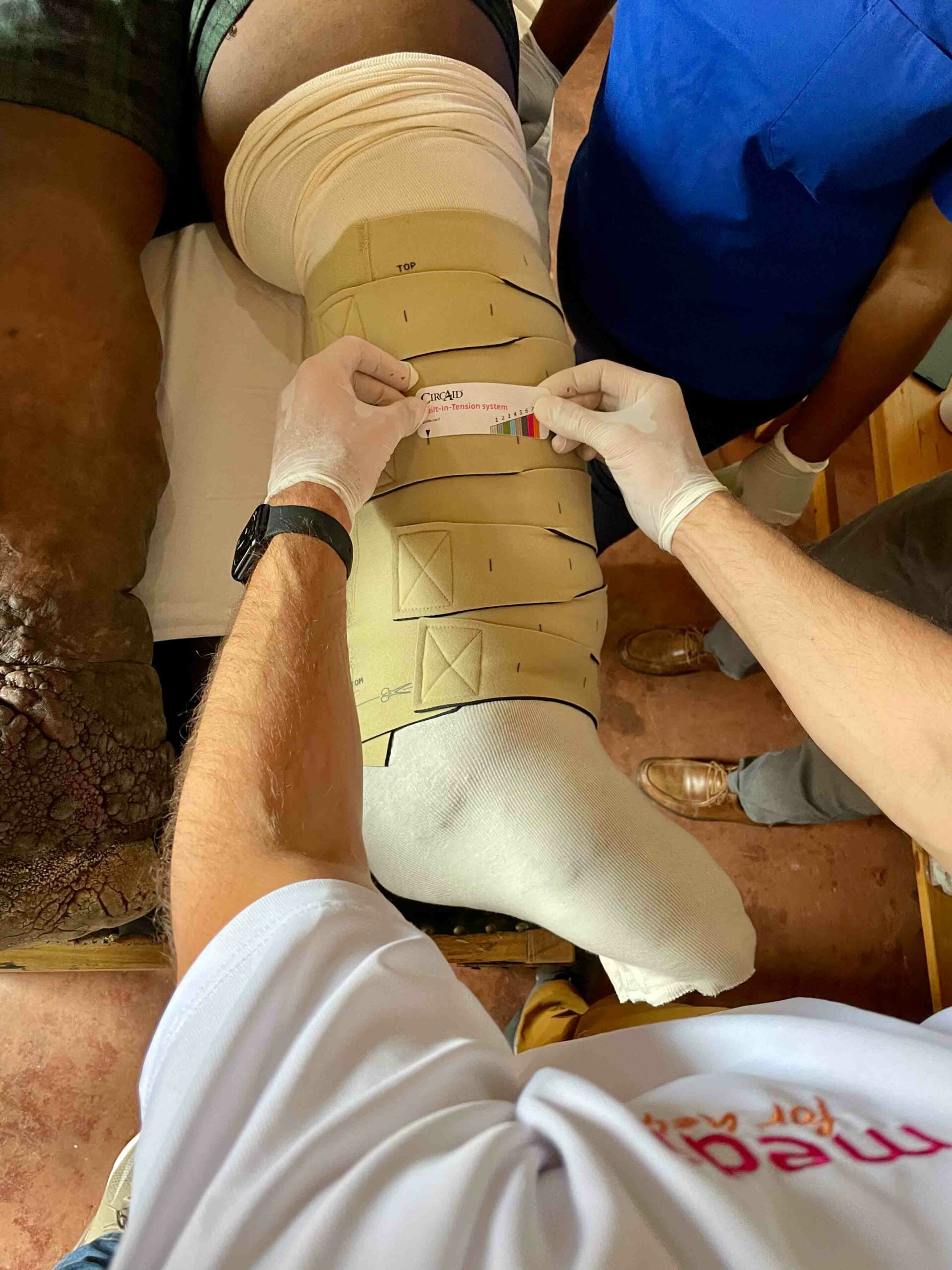
Wrap supports are used to decongest the oedema of the podo until treatment can be continued with a medical compression stocking. As well as the medical effect, this also achieves “visual normality” – often an essential aspect for reintegration into society. Unfortunately, not every patient’s condition meets the requirements for such compression therapy.
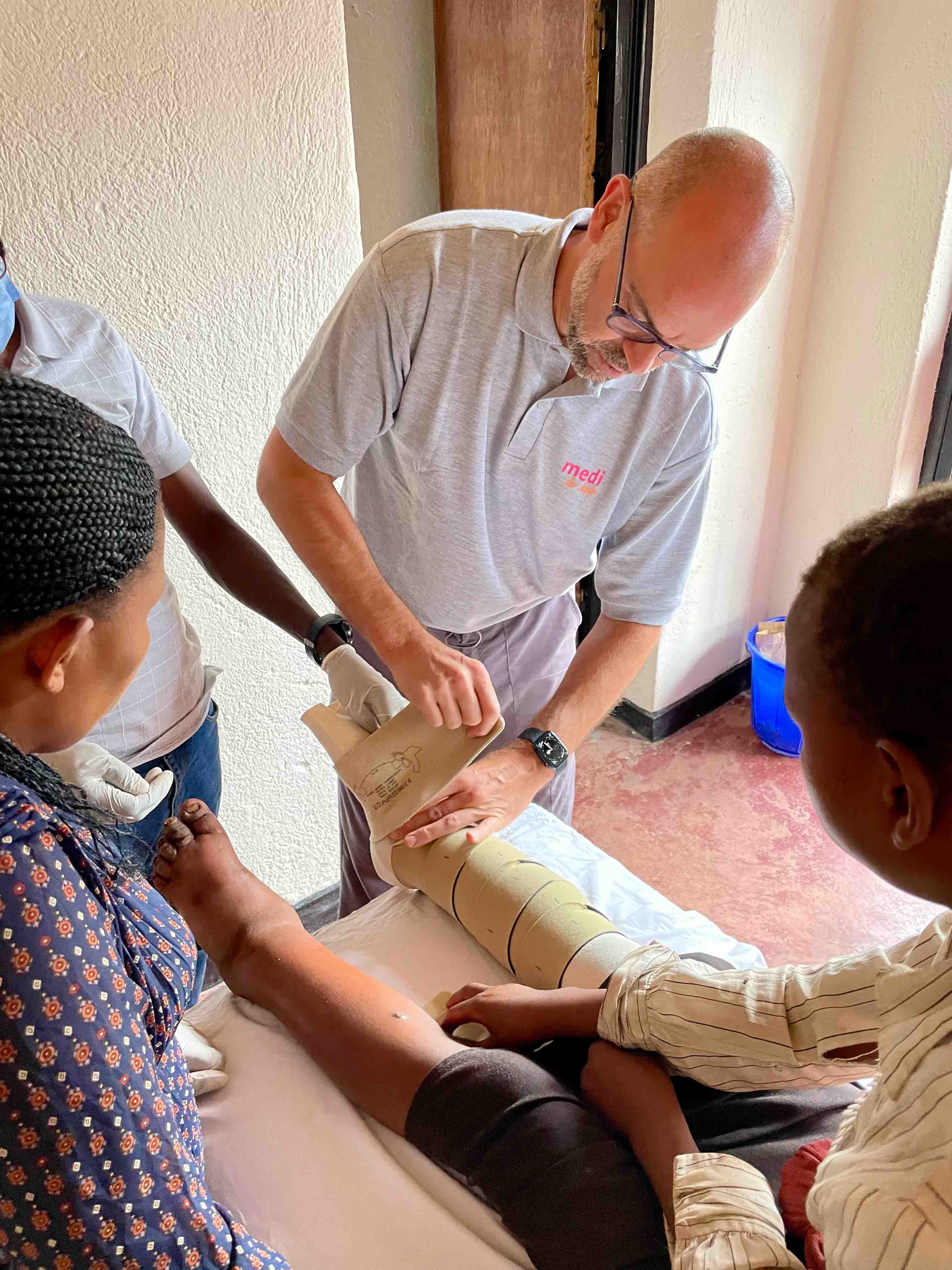
Christopher Miles has been a lymphoedema specialist and wound care team leader at medi USA for over 19 years. He was a medi for help representative in Rwanda, where he took leg and foot measurements of patients with the medi vision digital scanning system and adjusted the various fittings.
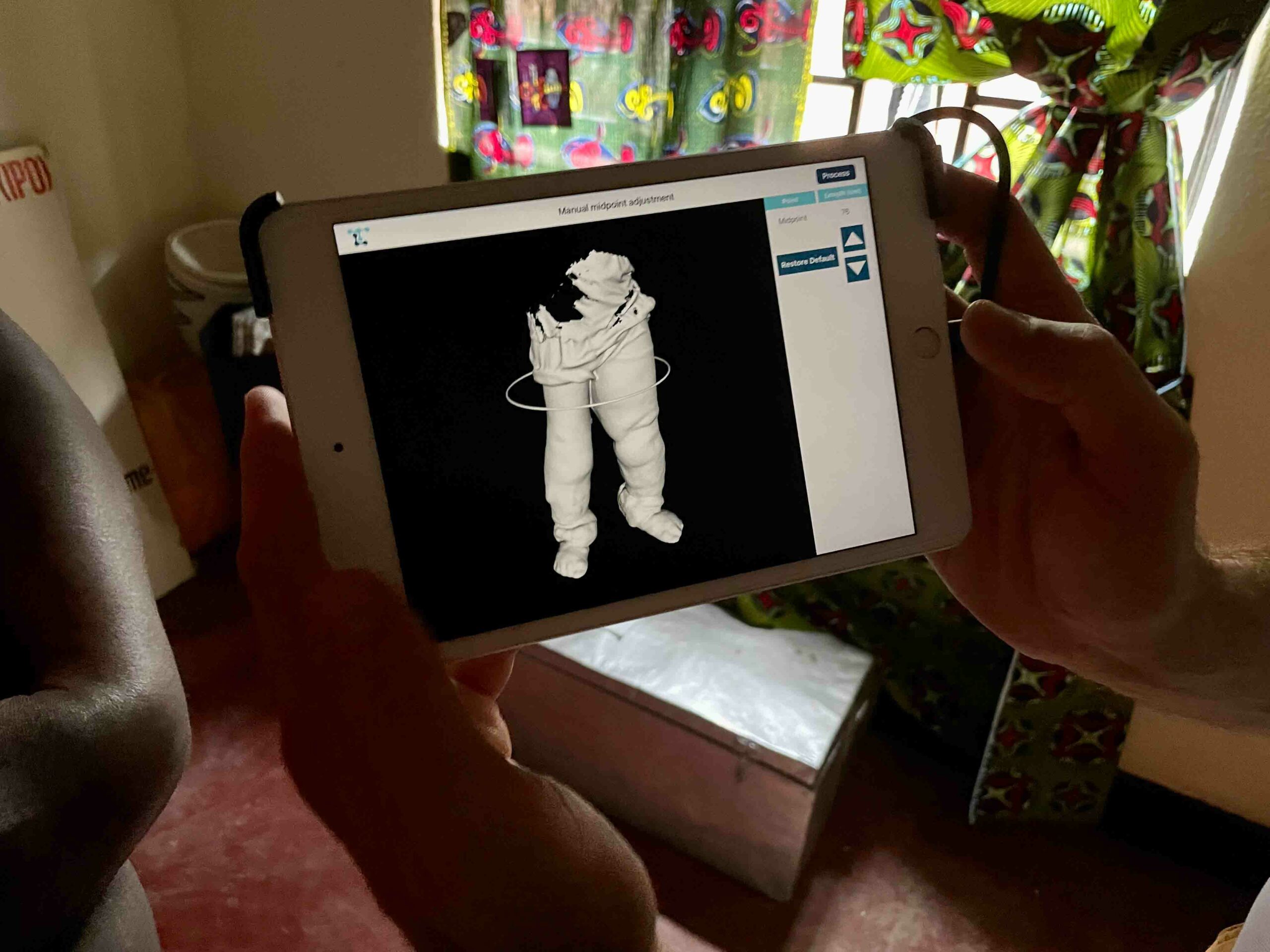
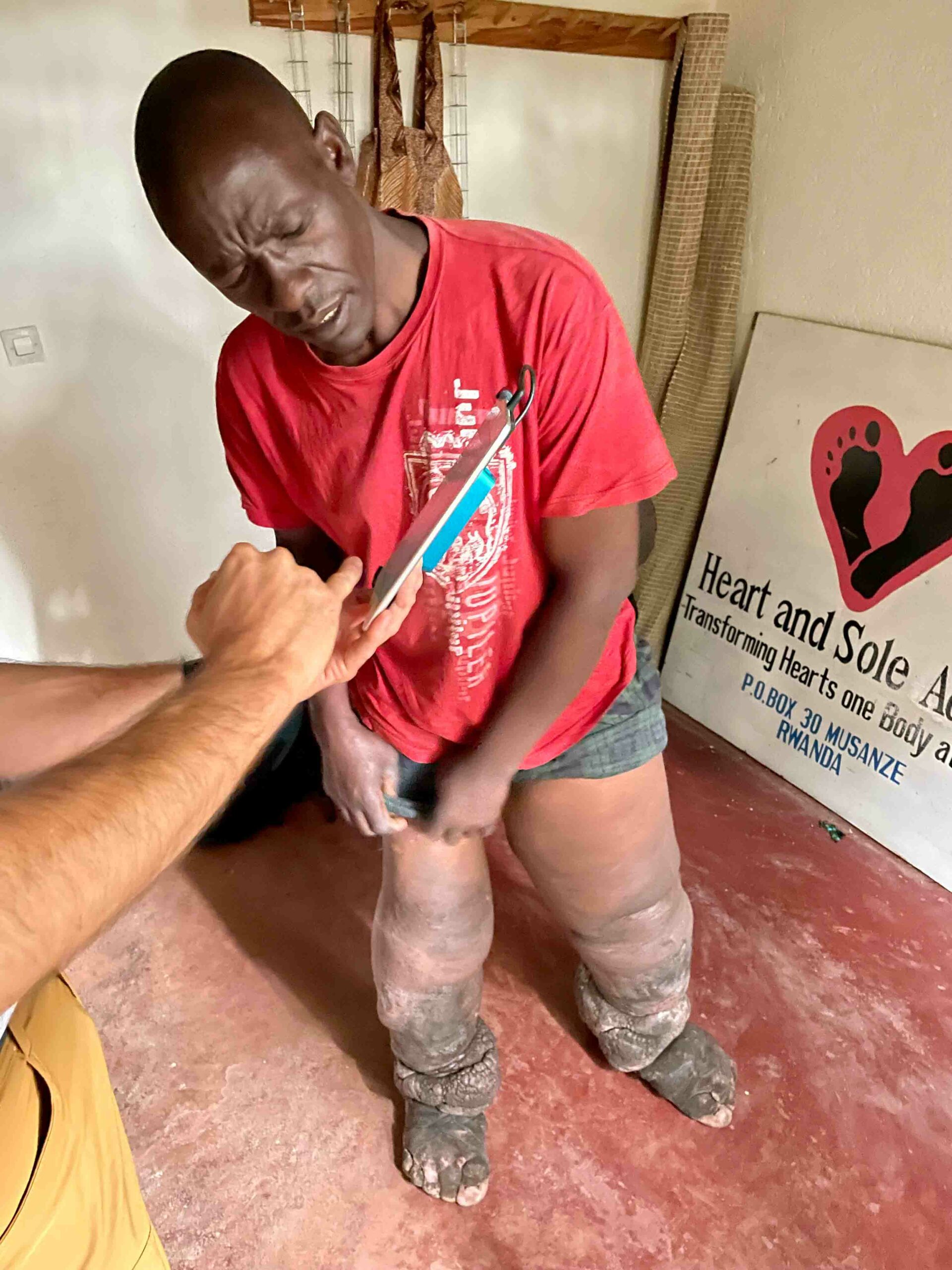
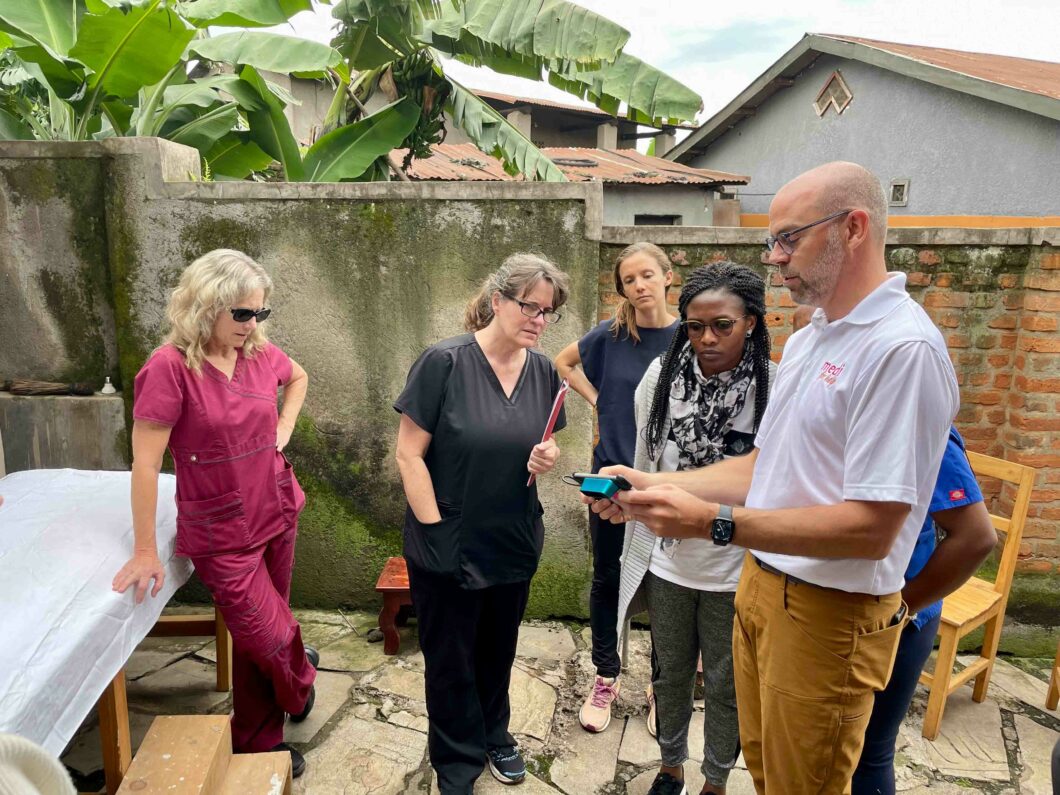
Valuable support in clinics: treatment, education and tools
For those affected, continuous preventive care to treat the skin and possible wounds is enormously important. HASA organises regular meetings of podoconiosis groups in its own clinics as well as in partner clinics in Kigali, Musanze, Kinoni and Nyamasheke, which we were also able to visit during our trip. At these clinics, patients receive free education and treatment for their lymphoedema.
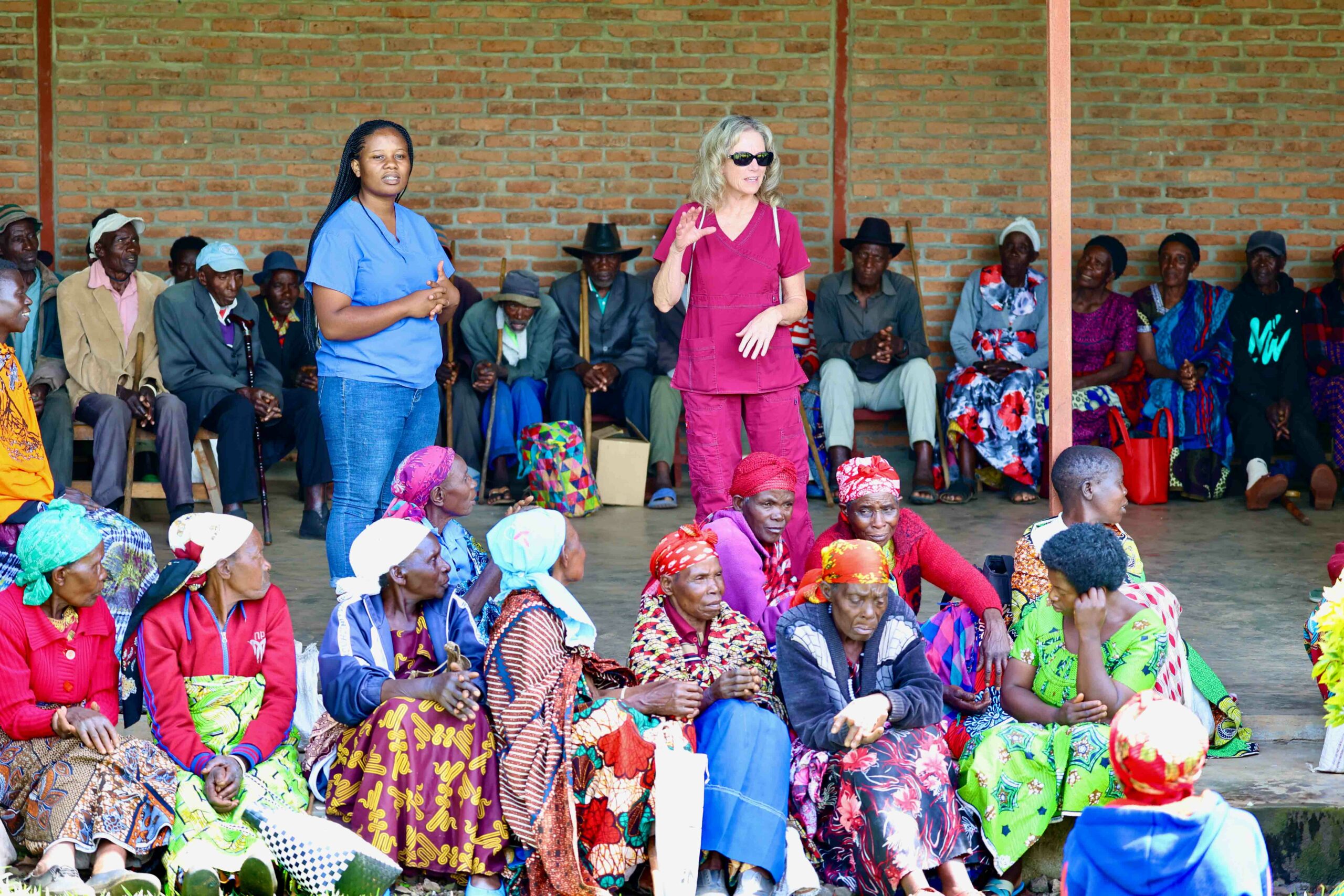
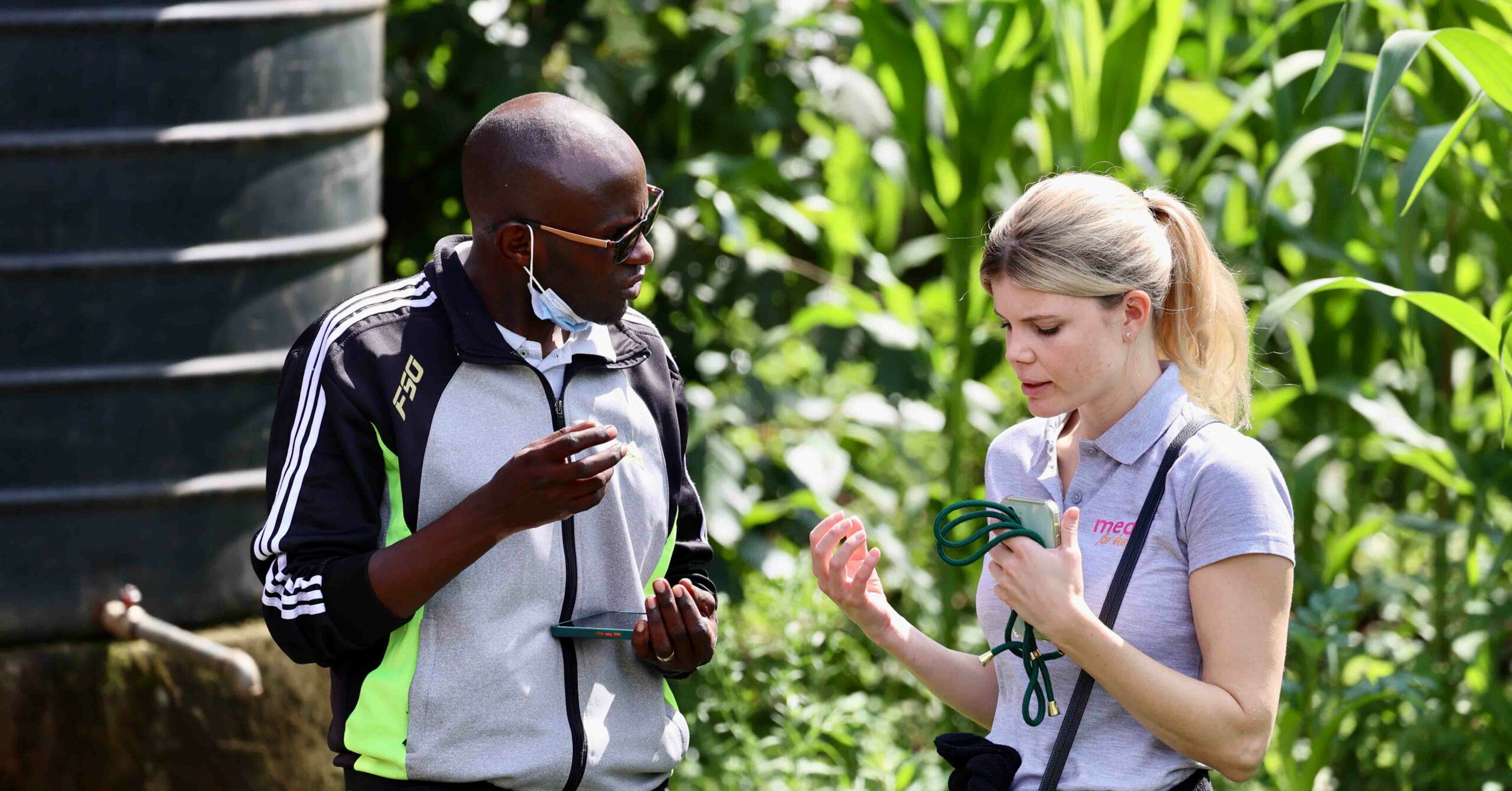
The treatment programme at the clinic in Musanze has been in place for the longest time. More than 300 patients are currently being treated there. Many of them come from the Kisoro district in the northern province, on the border between Rwanda and Uganda.
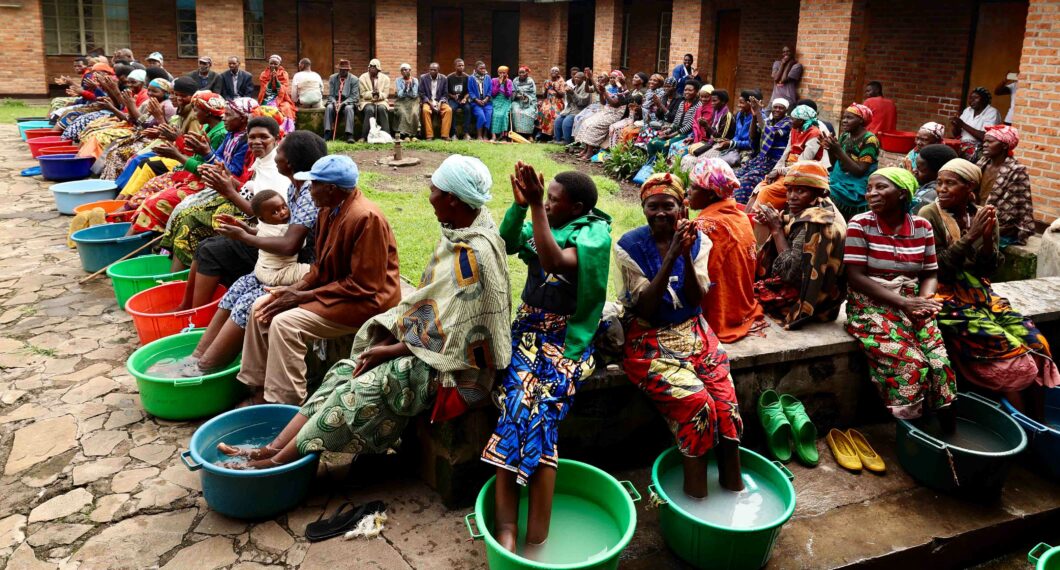
Their poor health and lack of financial resources make it difficult for many of these patients to travel to the Musanze clinic. Therefore, in 2014, Heart and Sole Africa opened an additional clinic at the community health centre in the village of Kinoni, located further to the north-east.
Podoconiosis groups with more than 100 patients are treated here once a week. After a thorough medical history is taken, all new patients also receive a treatment kit that includes a wash bowl, foot brush, file and bar of soap.
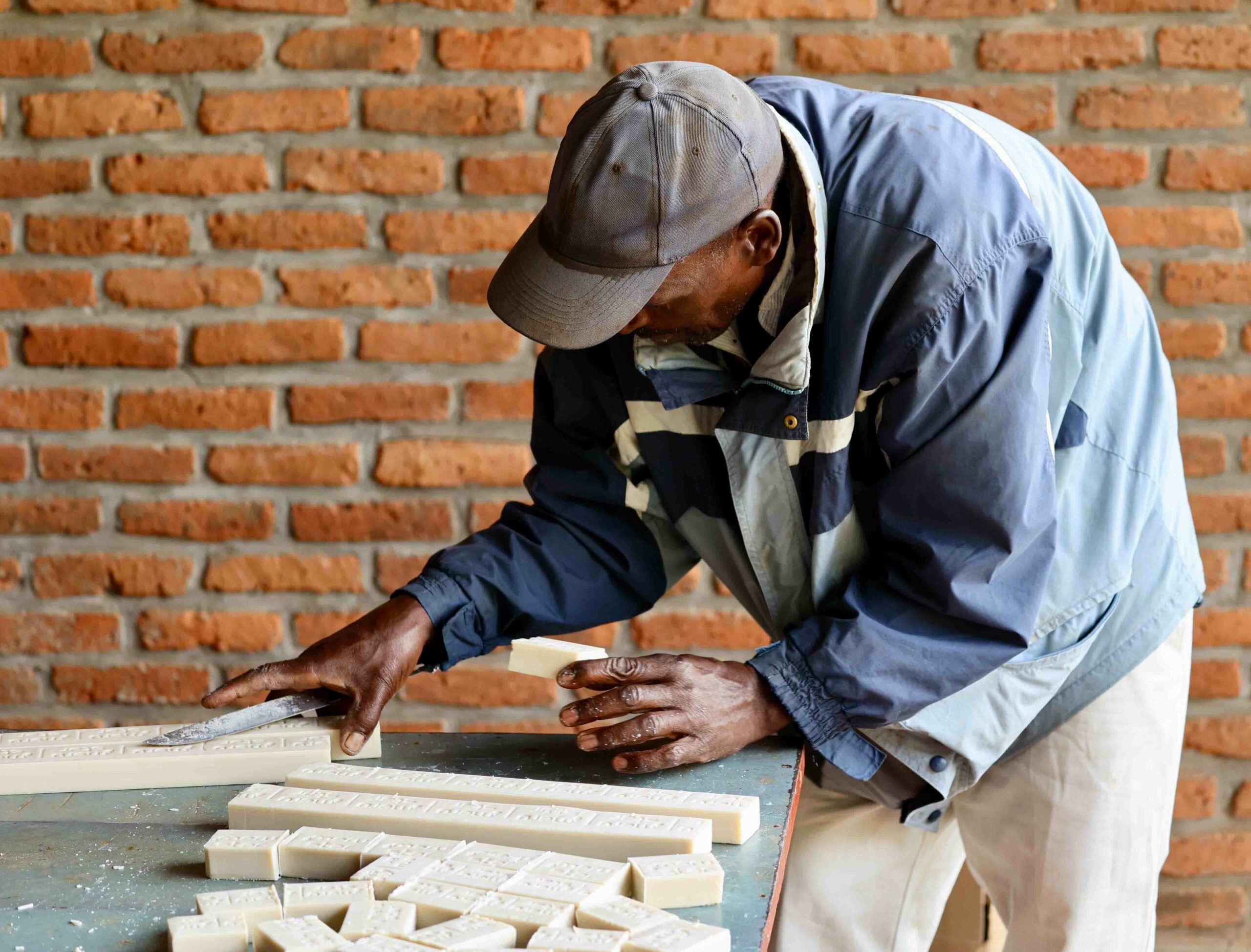
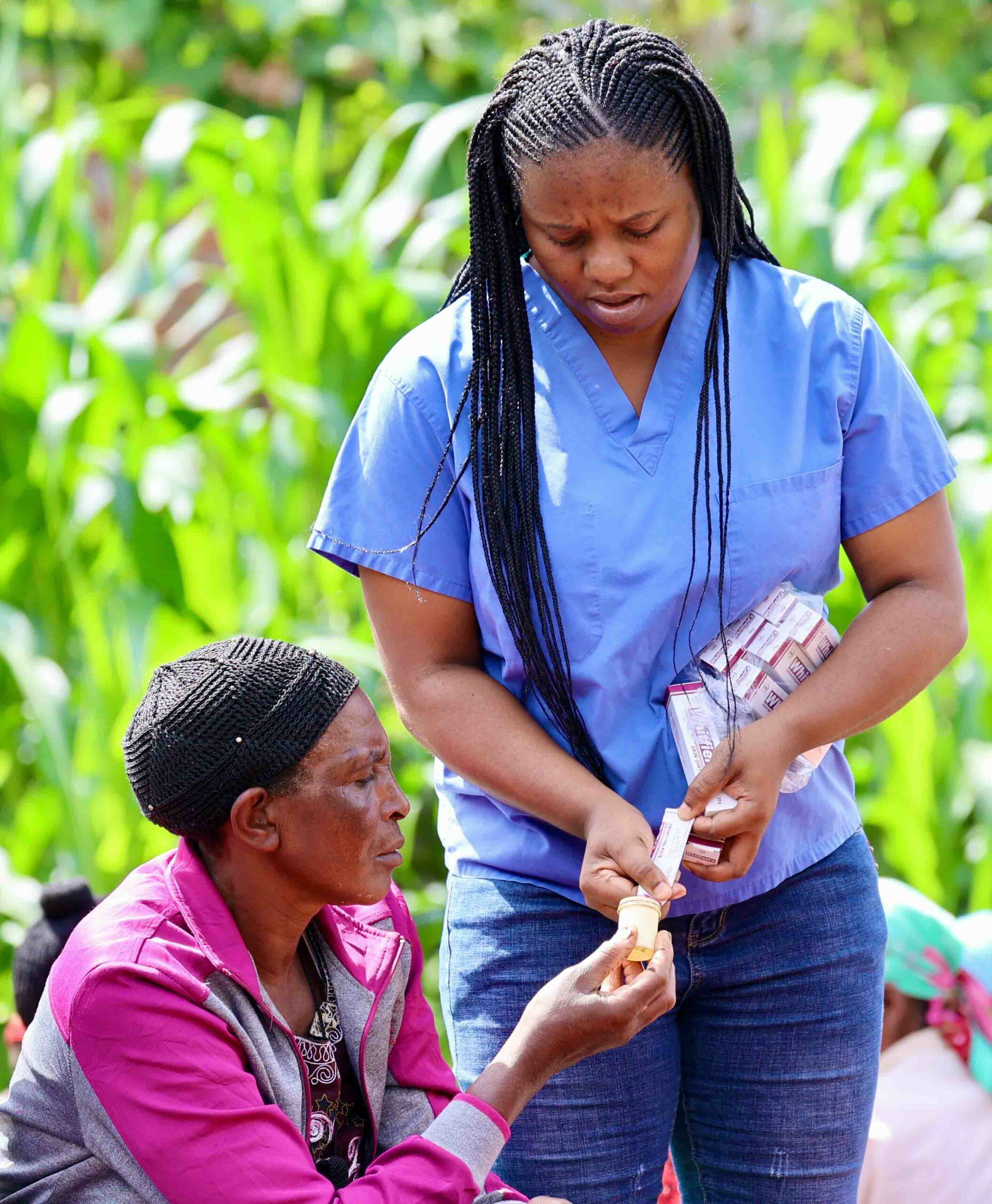
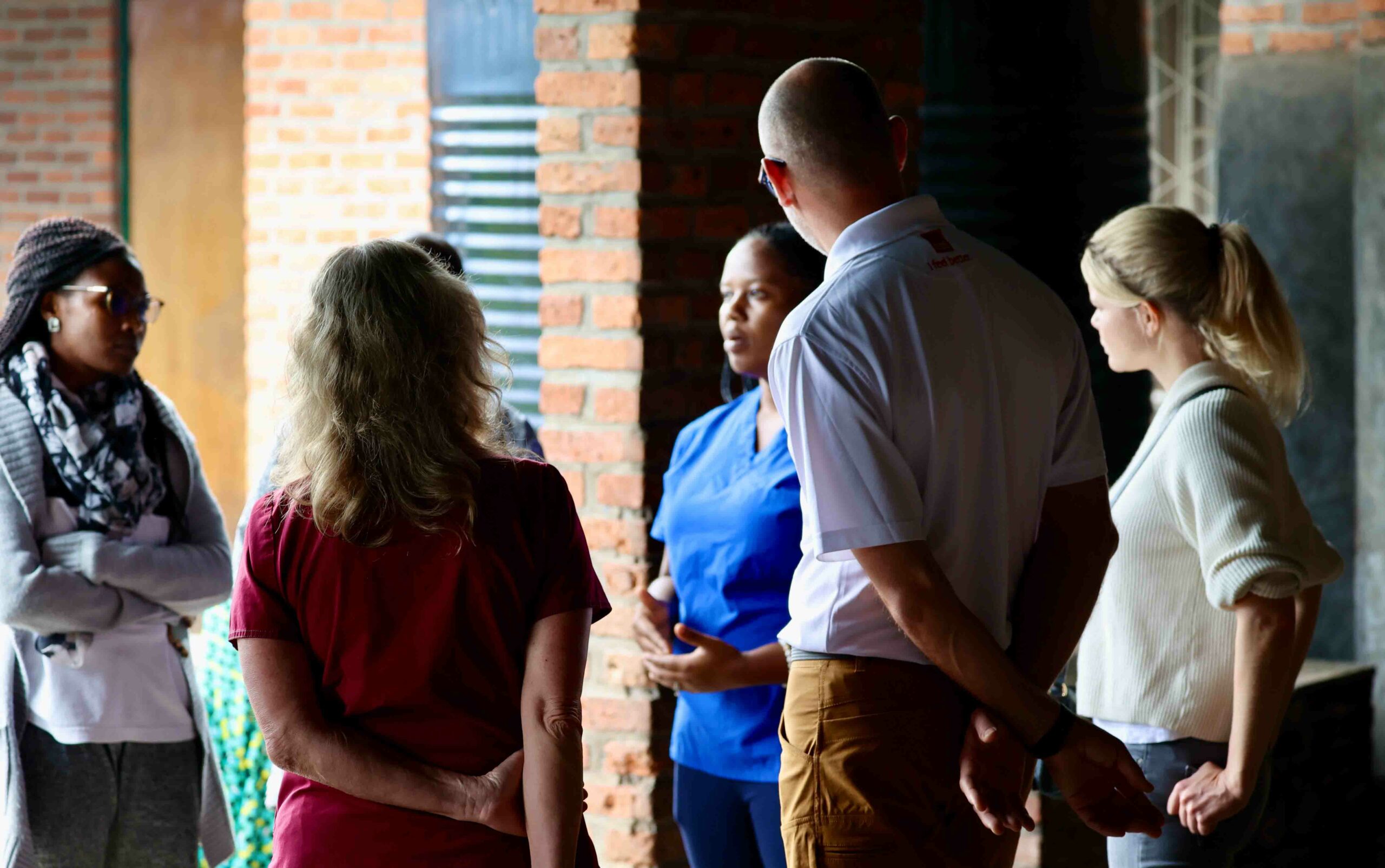
Patients come to the clinic twice a week to have foot baths, and have their feet scrubbed and filed. Washing the affected feet and lower legs is beneficial in reducing the incidence of skin infections in skin tears caused by the lymphatic swelling. Brushes and files are used to prevent external skin build-up such as fibrosis and hyperkeratosis, which are characteristic of lymphoedema.
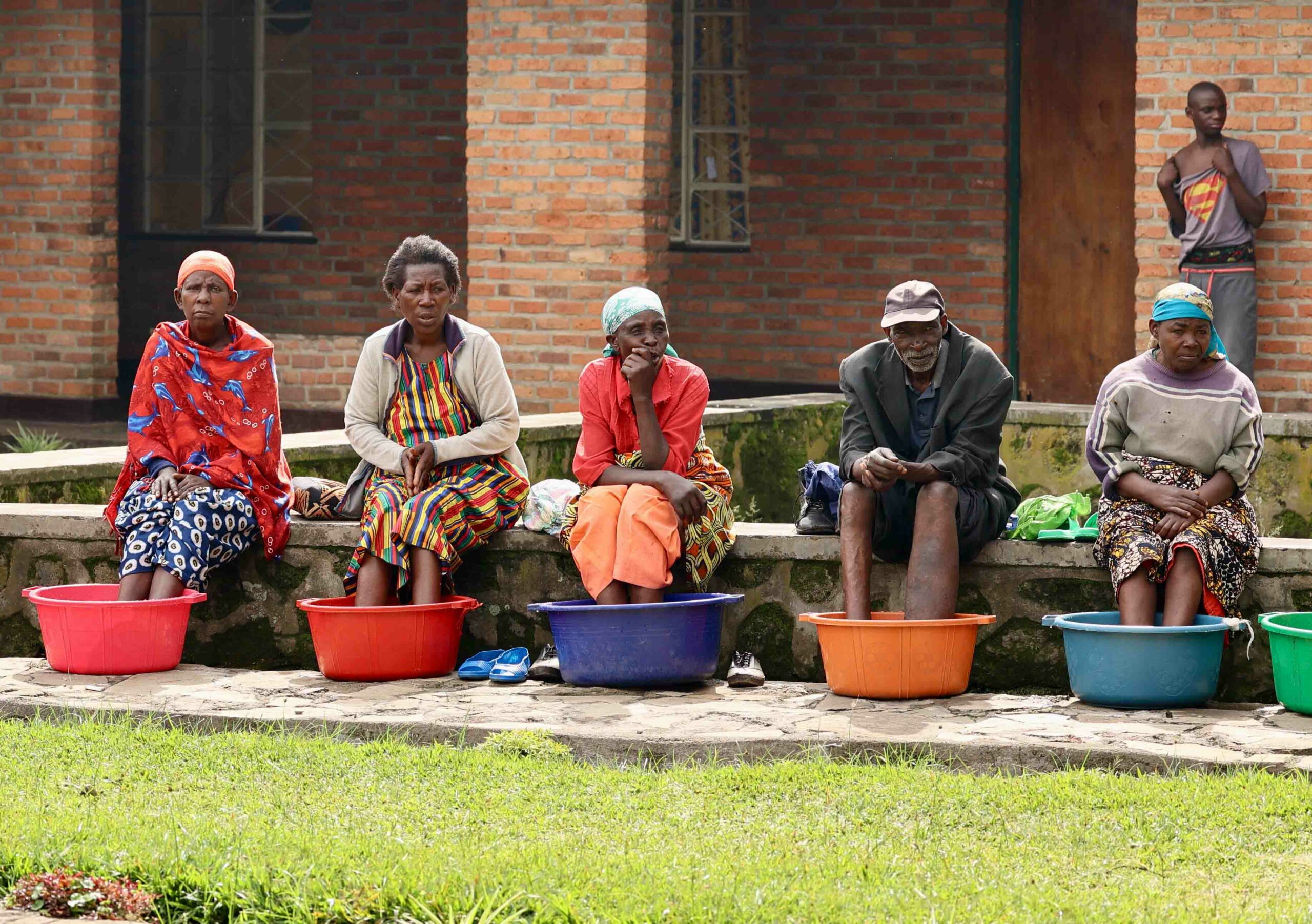
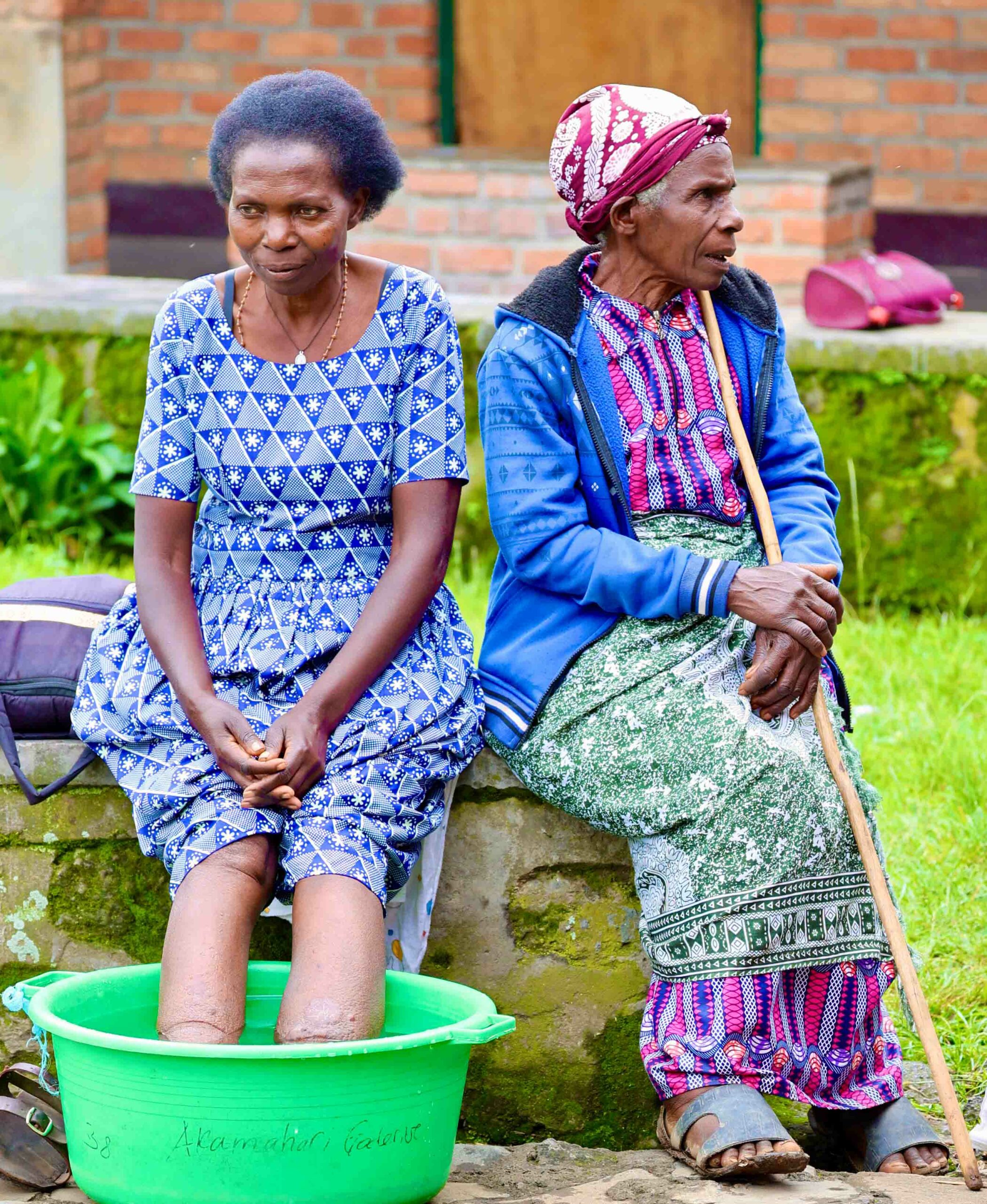
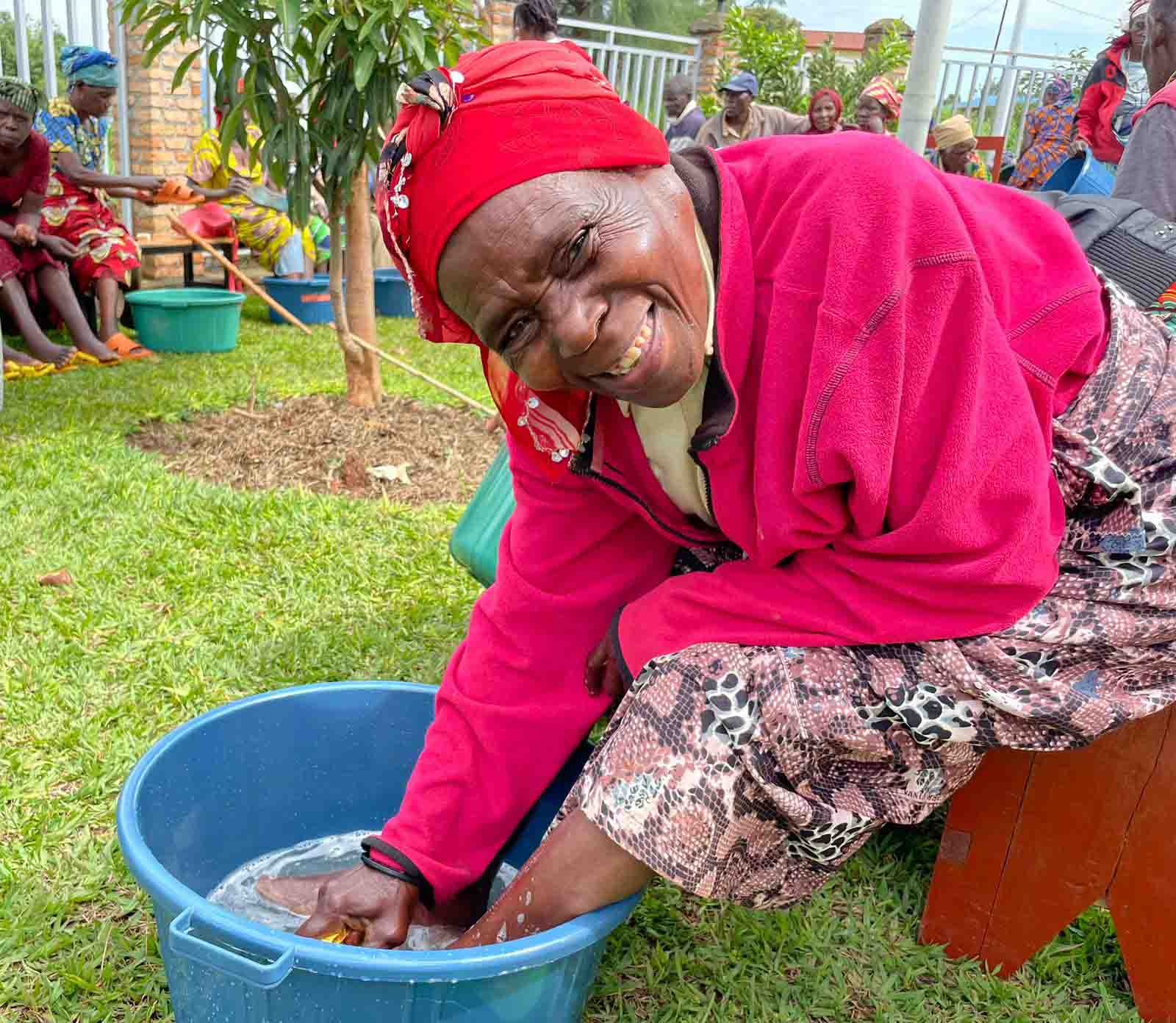
Patients who are eligible for further treatment are then selected. Alongside medical indications, the focus is on willingness and accessibility for follow-up treatment.
A frequent problem for those affected is shoe fitting. This is because sustainable compression therapy can only be successfully carried out with functioning footwear. Sadly, this is not available in 90 percent of cases. It is also important that patients can still wear closed shoes to protect the feet from additional stress.
Therefore, Heart and Sole Africa runs a small “shoe workshop” at the Musanze clinic, which currently only has the most basic equipment. The workshop has two employees, who also suffer from podo, and they use old car tyres as soles. They try to make the best of the available resources to produce functional footwear and improve treatment outcomes.
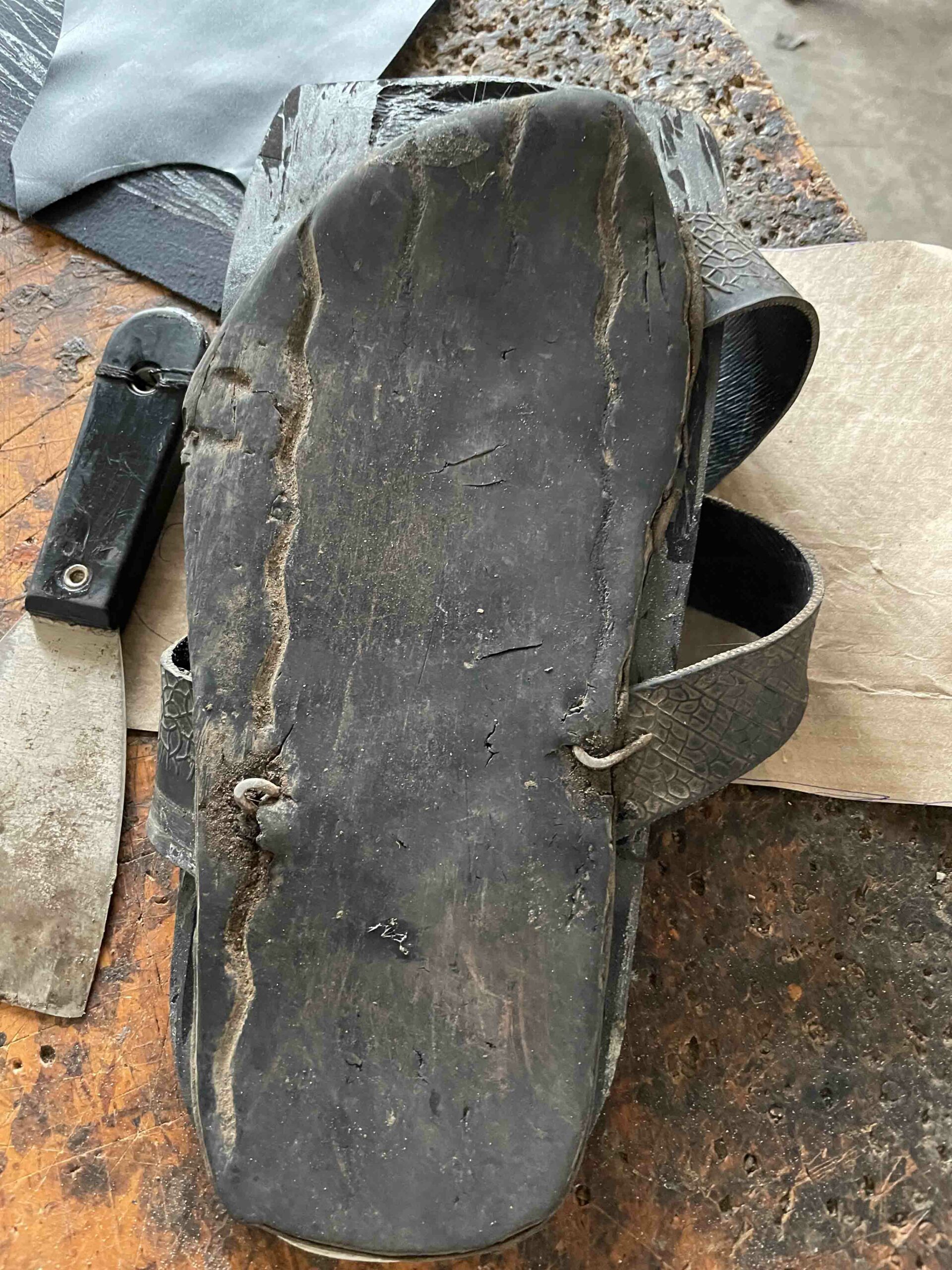
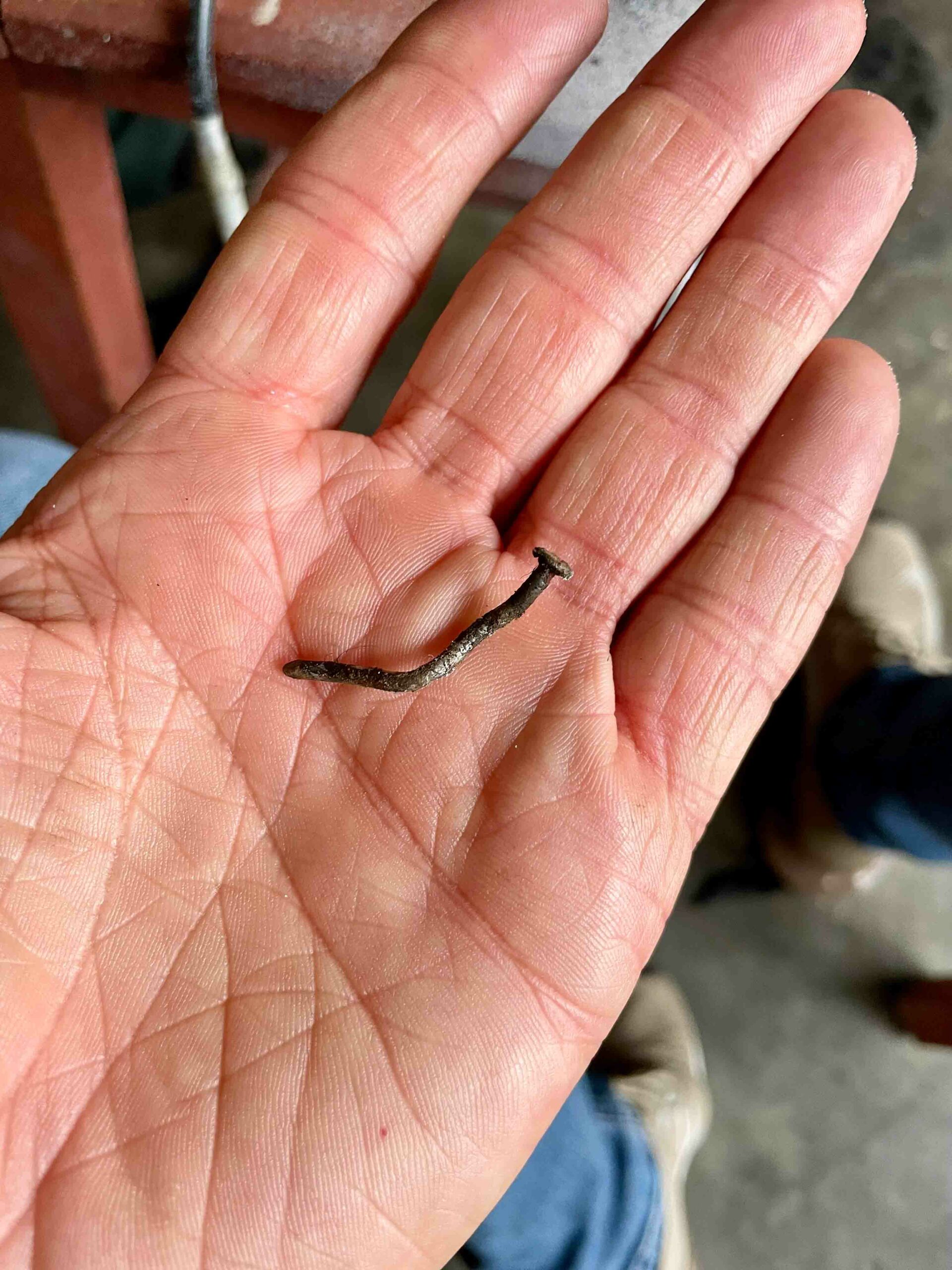
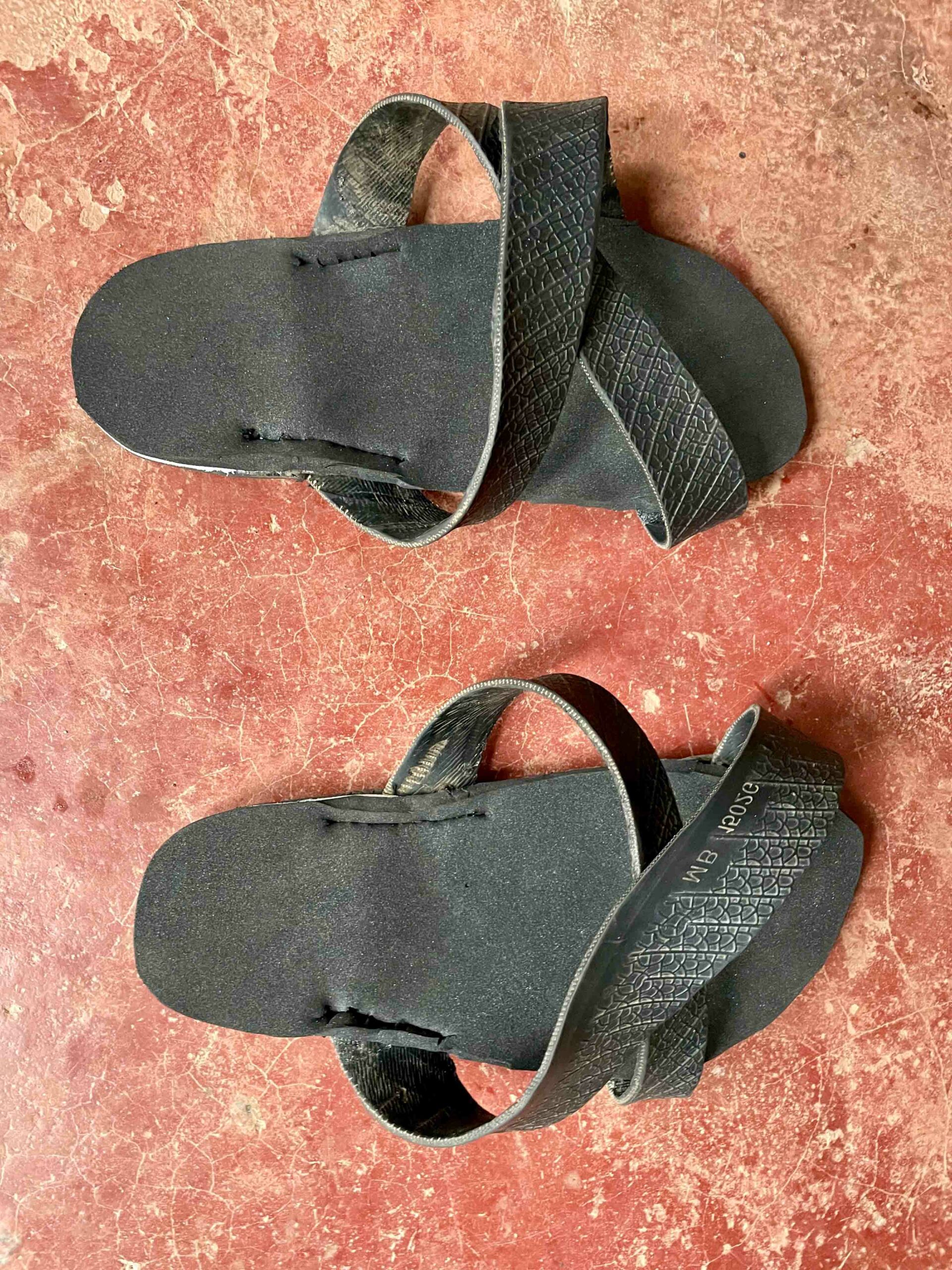
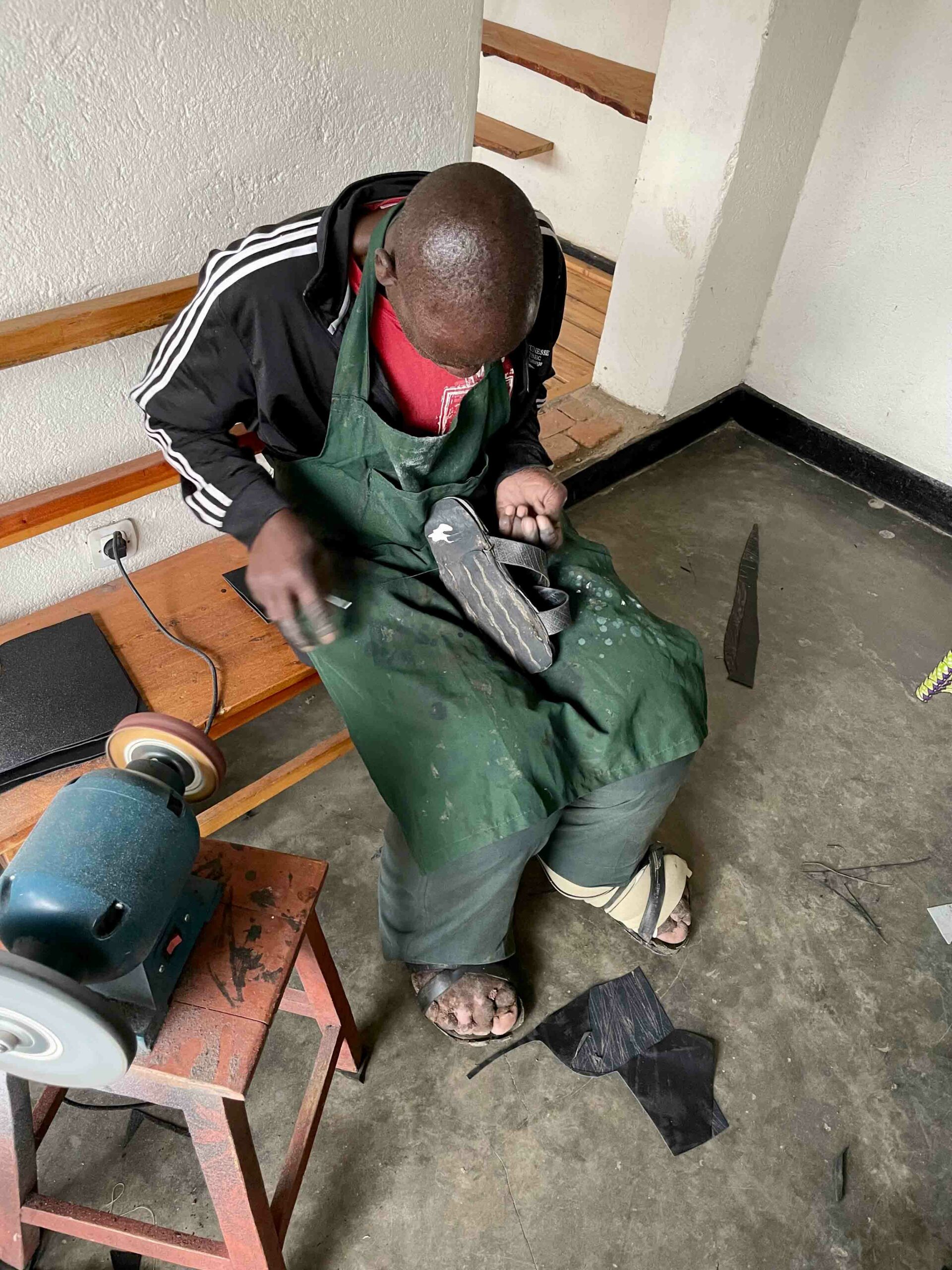
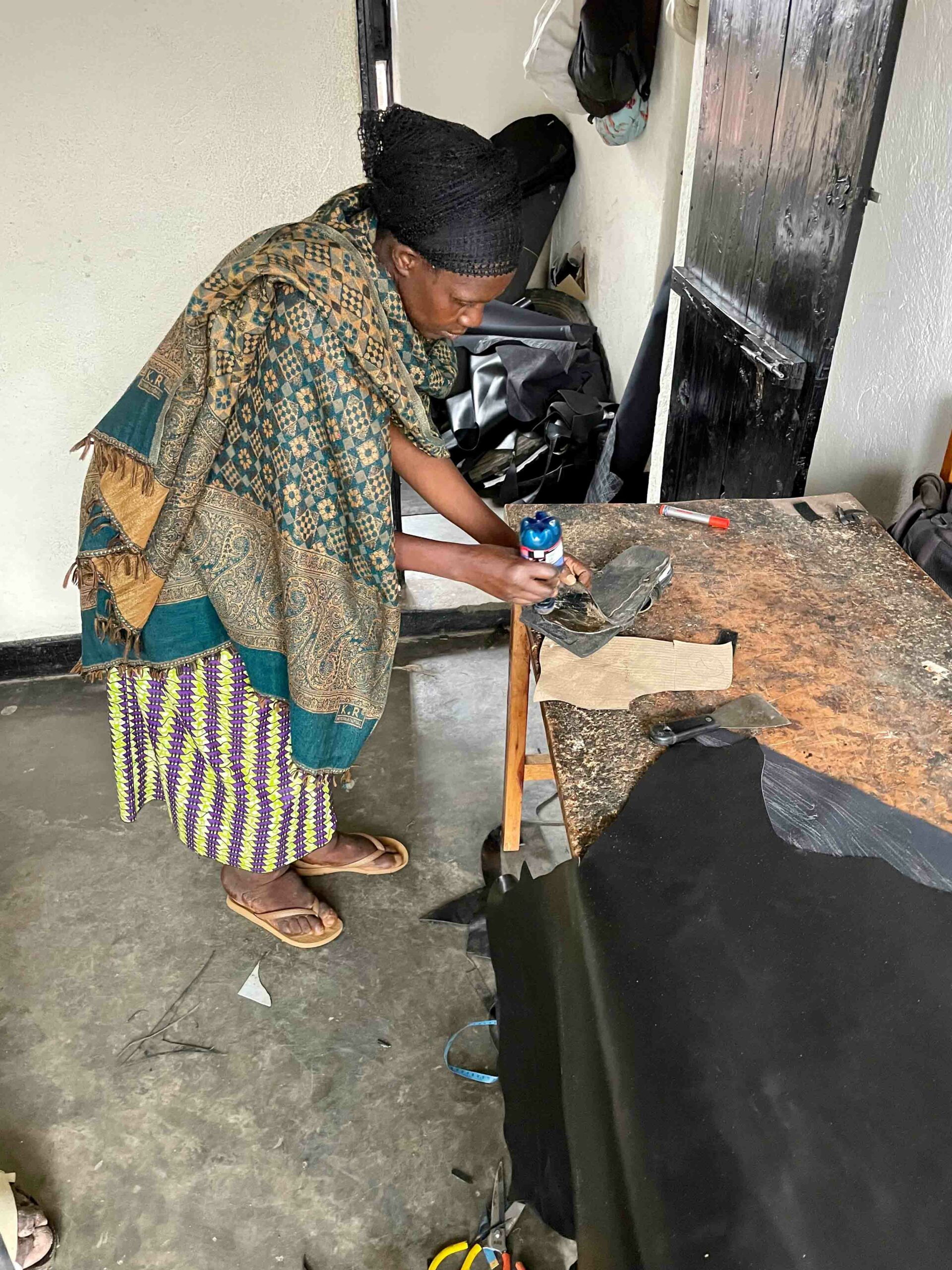
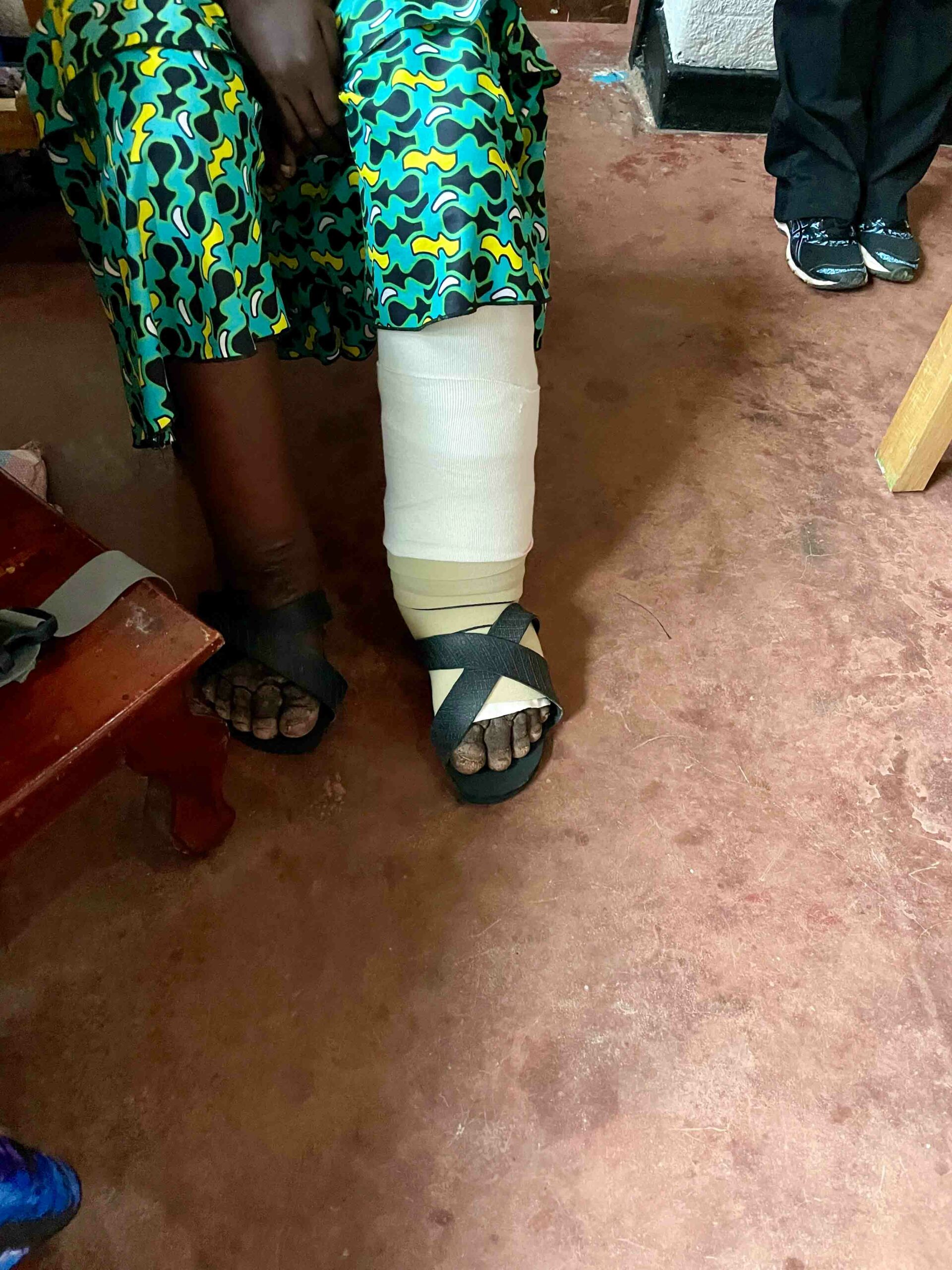
The next step
In the future, medi for help plans to work with HASA to deliver sustainable support to people affected by podo whilst also developing education and prevention activities in the relevant regions.
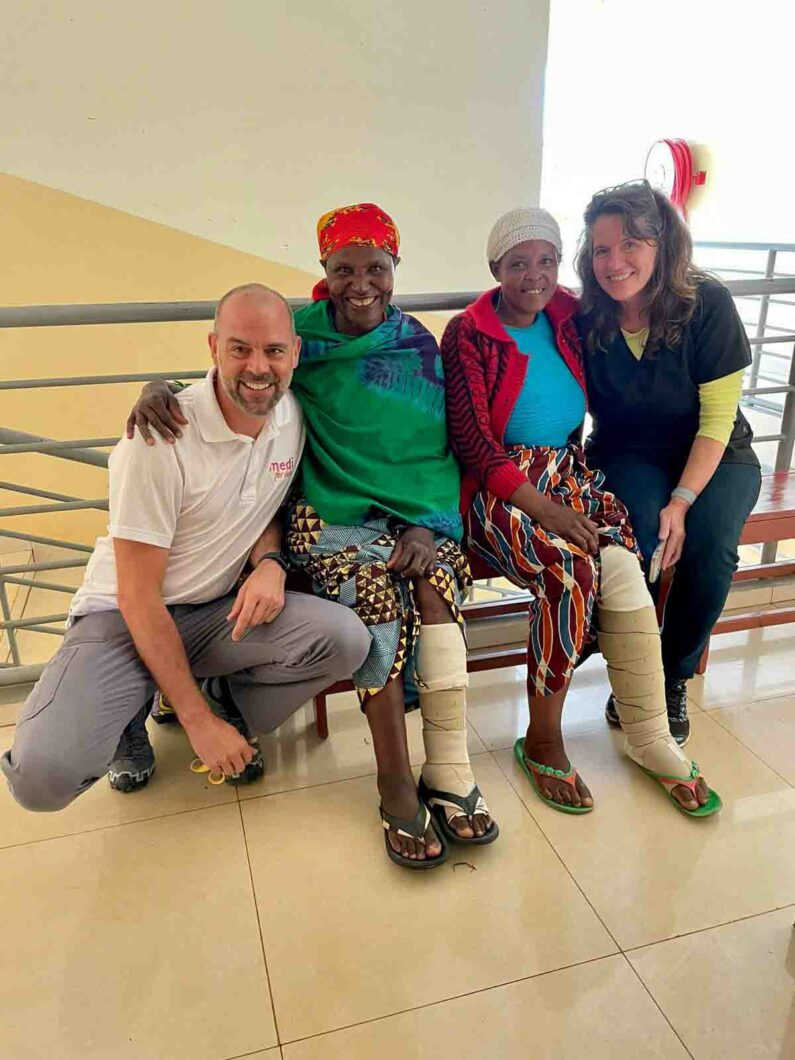
The only way that the programme can be successful for patients in the long term is by taking a holistic approach consisting of prevention, wound treatment, compression therapy and footwear provision. We consider taking an individual approach and providing consistent care for each patient very important.